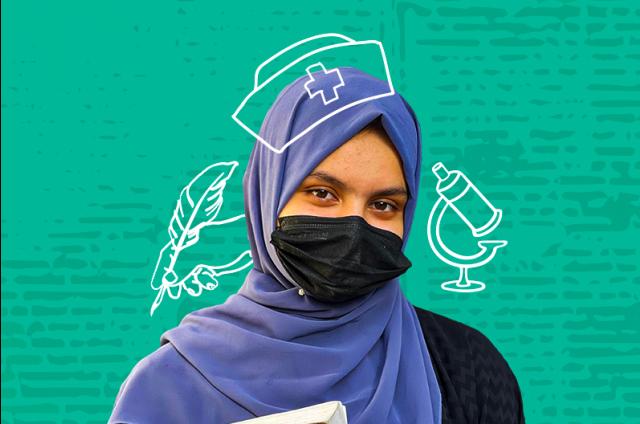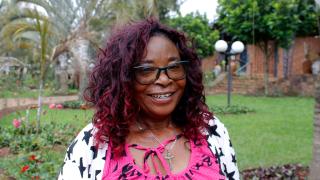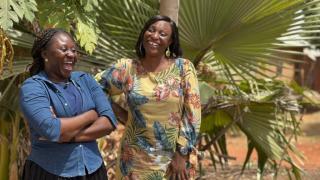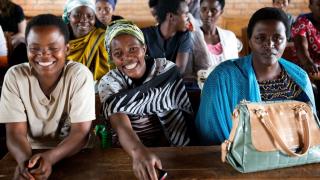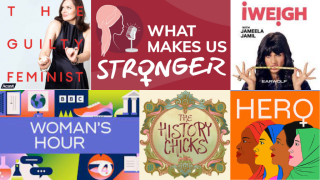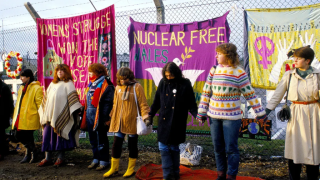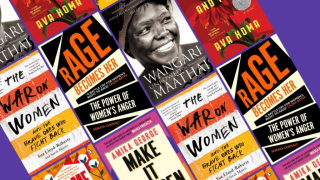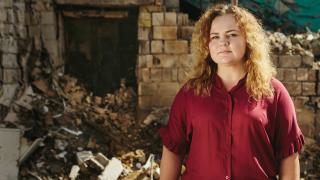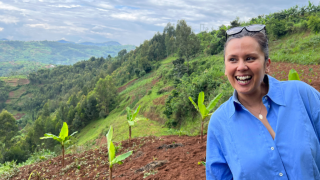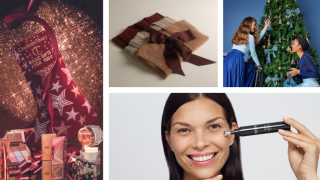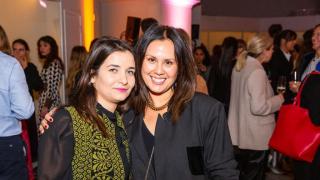Empowering Reads: A Journey Through Inspirational Books for Women and Girls
Reclaiming Their Stories: Celebrating the power of young women
Books to Inspire, Empower and Educate Adolecent Girls Worldwide
We are excited to announce the launch of Women for Women International's expanded Adolescent Girls Programme, an extension of our Stronger Women, Stronger Nations curriculum. This programme aims to support teenage girls aged 16-17 in conflict-affected countries, where they face extreme poverty, gender-based violence and limited educational opportunities. Globally, 119 million girls are not in school (source: UNICEF), highlighting the urgent need for intervention.
Our comprehensive curriculum covers gender equality, health, financial literacy, vocational skills, and future planning — designed to support young women and prepare them for economic independence. With a rights-based, survivor-centred approach, we ensure the safety and support of every participant.
Through our pilot programme in Rwanda and planned expansions to Iraq, Nigeria, and Afghanistan by the end of 2025, we aim to reach 3,000 girls.
In line with this mission, we've curated a selection of powerful books that resonate deeply with the themes of our Adolescent Girls Programme. These books connect to the rights of adolescents, addressing education, empowerment, resilience and activism. Happy reading!
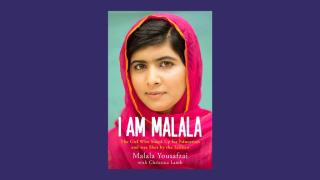
I Am Malala
Malala Yousafzai
Malala Yousafzai, the youngest-ever Nobel Prize laureate, is a global advocate for girls’ education. Her courageous stand against the Taliban’s oppressive policies has inspired millions, and her memoir tells the story of her incredible journey.
Why read it? I Am Malala: The Girl Who Stood Up for Education and Was Shot by the Taliban mirrors the challenges many adolescent girls face in our programme — the right to education which is often denied due to conflict and discrimination. Malala's story of resilience and activism serves as a reminder that education is key to empowerment.
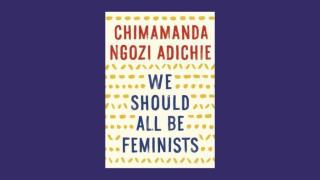
We Should All Be Feminists
Chimamanda Ngozi Adichie
Chimamanda Ngozi Adichie is a Nigerian author and feminist who has written widely about identity, gender and social issues. Her TEDx talk, which inspired this book, is a groundbreaking manifesto for gender equality.
Why read it? Adichie’s work aligns with our curriculum’s emphasis on gender equality and women’s rights. For teenage girls navigating a world that often marginalises them, her call for empowerment and inclusion is vital. With eloquence and passion, Adichie breaks down what feminism means today, making it accessible and relatable for people from all walks of life.
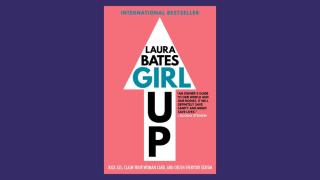
Girl Up
Laura Bates
Laura Bates is the founder of the Everyday Sexism Project, which has been a powerful platform for highlighting and addressing gender inequality.
Why read it? Packed with advice and inspiration, this book empowers young women to tackle sexism, build their confidence and assert their place in the world. Bates connects to the themes of our programme by encouraging young girls to challenge societal norms, build self-esteem and stand up against gender-based violence.
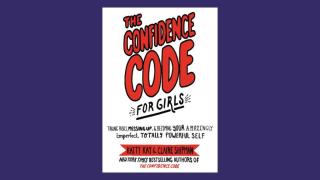
The Confidence Code for Girls
Katty Kay and Claire Shipman
Katty Kay is a journalist with BBC World News, and Claire Shipman is a journalist and advocate for women’s leadership. Together, they’ve written a book that aims to help girls break free from societal pressures and embrace their authentic selves.
Why read it? This book emphasises confidence and self-worth, key areas of focus in our Adolescent Girls Programme. By encouraging girls to take risks and embrace their unique strengths, it fosters the resilience and leadership skills our curriculum aims to build.
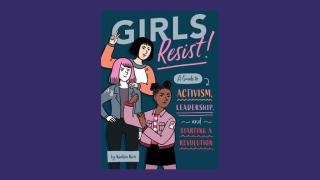
Girls Resist!
KaeLyn Rich
KaeLyn Rich is a writer and activist who works to promote social justice, particularly for youth and women.
Why read it? For young girls looking to make a difference, this book offers a step-by-step guide to activism, making it the perfect handbook for budding change-makers. Rich’s focus on activism mirrors our efforts to equip adolescent girls with leadership skills and the courage to advocate for their rights. This book is a powerful tool for those looking to effect change in their communities.
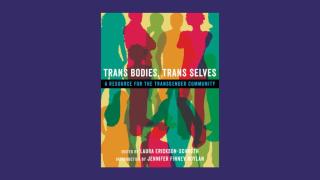
Trans Bodies, Trans Selves
Laura Erickson-Schroth
Laura Erickson-Schroth is a psychiatrist and transgender health advocate who focuses on promoting the well-being of transgender individuals.
Why read it? This invaluable resource tackles critical issues for the transgender community, providing education and support for individuals and allies alike. It aligns with our mission of creating safe spaces for all girls, regardless of gender identity.

The Girl Who Smiled Beads
Clemantine Wamariya
Clemantine Wamariya is a survivor of the 1994 Genocide Against the Tutsi in Rwanda and an advocate for displaced persons and refugees. Her memoir shares the story of her incredible personal journey.
Why read it? Clemantine’s story mirrors the experiences of many adolescent girls in our programme, who are often displaced by conflict and violence. Her story is a powerful testament to the strength it takes to overcome trauma and reclaim one’s future.
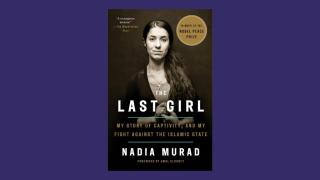
The Last Girl
Nadia Murad
Nadia Murad is a Yazidi human rights activist and Nobel Peace Prize laureate. She advocates for survivors of sexual violence and is a voice for the Yazidi community.
Why read it? Nadia’s story resonates deeply with the girls in our programme, many of whom are survivors of gender-based violence. Her activism and courage inspire young women to speak out and seek justice.
Read more
5 Things to Know About Sudan
subtitle:
As so many people are uprooted from their homes and forced to leave their land in Sudan, they carry a rich culture and heritage with them. While we raise awareness of the war that wages on and amplify the voices of Sudanese women suffering, we must also keep the richness of Sudan's culture and heritage alive. Here are five facts you should know.
7th April, 2024 marks 30 years since the genocide in Rwanda. Kakuze Marie Emerance, a survivor and now a trainer at our Women's Opportunity Centre shares her story, from the tragedy of the genocide to forgiveness and reconciliation.
Restoring hope, one woman at a time
subtitle:
Athiya Nemani Micah and Ruth Benjamin Raumna have been social empowerment trainers in Nigeria for over six years. Read about the transformation they've seen in women as they gain power and confidence in our programme.
By standing with women survivors of war, you are helping them realise their power and full potential. Find out more about how you can become a Stand With Her supporter and join our global community.
Shop to support women who dare
subtitle:
To mark International Women's Day 2024, we are partnering with remarkable brands that are committed to making a difference to the lives of women around the globe. Discover how you can shop with purpose and support women survivors of war this March.
This Women's History Month, explore new perspectives on feminism and womanhood by delving into these podcasts. From career advice to current affairs, each episode is sure to remind you of your inner power and the change we can make if only we dare challenge the status quo.
The power of art for activism
subtitle:
When art an activism are brought together, they have the incredible power to overcome cultural and language barriers, allowing marginalised voices to take centre stage. Learn more about the courageous women daring to use art to challenge the status quo and drive positive change in their communities.
Women's History Month Book List
subtitle:
Feed your mind this Women's History Month with books from women writers. Their powerful words and stories honour women throughout history and across the globe - their lives, experiences and courage to drive change.
Ukraine Two Years On
subtitle:
Anna Orel, Iryna Andreieva and Anna Mnishchenko from our partner organisation in Ukraine share their experience of war and supporting women, two years after the war in Ukraine started.
The highlights of my trip to Rwanda
subtitle:
In December 2023, Sara Bowcutt, Women for Women International - UK's Managing Director, went on a donor trip with our partner Allen & Overy to show them the amazing impact our Stronger Women, Stronger Nations programme can have on the lives of women survivors of war. We asked her to reflect on the trip and share three of her favourite highlights.
Giving Tuesday 2023
subtitle:
Shop with purpose this Giving Tuesday. You can stand in solidarity with women survivors of war while shopping with our partners.
Celebrating 30 years of Sisterhood
subtitle:
This month, we celebrated our 30th Anniversary with a special evening at the V&A Museum. In her speech, our Managing Director Sara Bowcutt, reflected on the power of sisterhood to transform and rebuild lives following war.

